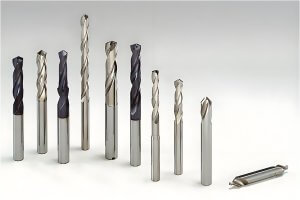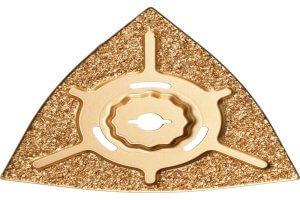Introduction
In modern manufacturing, the ability to machine tough materials like titanium, stainless steel, and high-strength alloys is a significant competitive advantage for CNC suppliers. One of the most critical factors in ensuring success in these challenging machining tasks is the use of tungsten alloy tooling. Tungsten alloy tools offer exceptional hardness, durability, and heat resistance, making them ideal for machining hard-to-process materials.
This article will explore why tungsten alloy tools are essential for CNC suppliers, how they enhance machining performance, and what to consider when choosing a supplier that uses these advanced tools. We’ll also review the technical challenges of tough material machining and how tungsten alloy tools overcome them.
Tungsten Alloy Tooling: Advantages and Applications
Tungsten alloy tools are known for their unique properties, which make them well-suited for machining high-performance materials. These advantages include:
| Advantage | Description |
|---|---|
| High Hardness | Tungsten alloys provide superior hardness, enabling them to cut through hard materials. |
| Wear Resistance | High resistance to wear extends tool life, reducing the need for frequent tool changes. |
| Heat Resistance | Tungsten alloys can withstand high temperatures generated during high-speed machining. |
| Precision | Tungsten tools offer excellent precision, which is critical for tight-tolerance components. |
Applications of Tungsten Alloy Tools in CNC Machining
- Aerospace Components: Machining high-strength alloys used in aerospace, such as titanium and nickel alloys.
- Automotive Industry: Used for manufacturing parts that require high precision and durability, like engine components.
- Medical Devices: Precision machining of materials such as stainless steel and specialized medical-grade alloys.
- Defense Industry: Tungsten alloy tooling is used for parts requiring extreme durability and resistance to wear in military applications.
By using tungsten alloy tooling, CNC suppliers can machine hard-to-process materials more efficiently, with fewer tool changes and higher precision.
How Tungsten Alloy Tooling Reflects CNC Supplier Capabilities
Tungsten alloy tooling offers CNC suppliers significant advantages when machining high-strength, hard-to-machine materials like titanium, stainless steel, and nickel-based alloys. Tungsten alloy’s exceptional hardness, wear resistance, and heat tolerance allow CNC machines to operate at higher speeds with consistent precision. These tools’ durability is essential for high-performance industries like aerospace, automotive, and medical devices, where precision and repeatability are paramount.
Theoretical Advantage of Tungsten Alloy Tooling
- Wear Resistance: Tungsten alloys maintain their cutting edges much longer than standard tool materials. The ability to endure prolonged high-stress conditions is especially important in production-scale machining. For example, in aerospace turbine blade manufacturing, tungsten alloy tools can provide up to 40% longer tool life compared to conventional carbide tools.
- Heat Resistance: Tungsten alloys have a high melting point (over 3,400°C), making them resistant to heat build-up during high-speed machining. This enables CNC suppliers to machine high-temperature alloys like Inconel without frequent tool changes.
- Precision: Tungsten alloy tools maintain tighter tolerances due to reduced deformation under heat and pressure. CNC suppliers who use these tools can guarantee micron-level accuracy, making them invaluable in medical device production, where parts often require ±5-micron precision.
Case Study: Aerospace Industry
A CNC supplier specialized in aerospace engine parts utilized tungsten alloy tooling for machining titanium and nickel-based superalloys used in jet turbines. Due to the extreme hardness of these materials, conventional tools would wear down quickly, causing production delays. By switching to tungsten alloy tools, the supplier achieved:
- A 50% reduction in tool wear, significantly lowering tool change frequency.
- Improved surface finish on critical components, reducing the need for post-machining polishing.
- Cycle time reduction by 20%, enabling faster turnaround for high-demand aerospace contracts.
Evaluating CNC Supplier Capabilities Through Tooling Choices
Suppliers using tungsten alloy tools demonstrate a deep understanding of difficult-to-machine materials and the challenges involved. These tools indicate that the supplier is equipped to handle high-performance materials that require high thermal resistance and extreme durability. Moreover, using tungsten alloy tools showcases a supplier’s capability to optimize machining parameters, balancing cutting speed, feed rate, and tool longevity.
Such expertise in tooling also highlights the supplier’s ability to provide high-volume precision machining without compromising on quality, even when working with exotic metals like Hastelloy or Monel.
Key Technical Parameters for Machining Tough Materials with Tungsten Alloy Tools
Tungsten alloy tools allow CNC machines to push beyond the limitations of conventional tools, particularly when machining tough materials. Understanding the critical technical parameters is essential to ensure optimal performance and maximum tool life.
1. Cutting Speed and Feed Rate
- Cutting Speed: Tungsten alloy tools can sustain higher cutting speeds due to their heat resistance and strength. For example, when machining Inconel 718, a common superalloy in aerospace, tungsten alloy tools can achieve cutting speeds up to 40-50 meters per minute, compared to 20-30 meters per minute with standard carbide tools.
- Feed Rate: Tungsten alloy’s superior toughness allows for higher feed rates, reducing overall machining time. When processing stainless steel, feed rates can be increased by 15-20% without tool failure, significantly boosting productivity in automotive part manufacturing.
| Material | Standard Cutting Speed (m/min) | Tungsten Alloy Cutting Speed (m/min) | Feed Rate Improvement (%) |
|---|---|---|---|
| Inconel 718 | 20-30 | 40-50 | +25% |
| Titanium Alloy | 60-80 | 80-100 | +15% |
| Stainless Steel | 80-100 | 100-120 | +20% |
2. Tool Wear and Tool Life
Tool wear is a critical concern in machining tough materials. Tungsten alloy tools excel in maintaining sharpness over extended use, even when machining high-tensile materials like titanium or cobalt alloys. In aerospace components, tests show that tungsten alloy tools offer up to 60% longer tool life compared to standard carbide tools, reducing the need for frequent tool changes and improving overall productivity.
3. Heat Management and Tool Stability
As machining speeds increase, so do the heat and friction generated at the cutting point. Tungsten alloy’s thermal conductivity and heat resistance allow it to operate at temperatures exceeding 600°C without losing cutting efficiency. This makes tungsten alloy tooling ideal for high-speed machining of nickel-based superalloys, where heat buildup can degrade conventional tools.
Case Study: Automotive Industry
A CNC supplier for the automotive sector had consistent challenges with tool wear when machining hardened steel for engine components. After switching to tungsten alloy tools, the supplier observed:
- A 35% reduction in machining time due to increased cutting speeds and feed rates.
- Improved dimensional accuracy across batches, with tolerances kept within ±3 microns.
- Tool life extended by 50%, leading to fewer tool replacements and lower overall production costs.
4. Surface Finish and Tolerance Control
Tungsten alloy tools are well-suited for finishing operations, offering better surface finishes even at higher cutting speeds. This is especially important in industries like medical devices, where components need to meet high aesthetic and functional standards. Tungsten alloy tools minimize surface roughness, often resulting in Ra values below 0.8 µm, which is critical for parts requiring smooth surfaces for lubrication or medical-grade components.
| Technical Parameter | Improvement with Tungsten Alloy Tools |
|---|---|
| Cutting Speed | Increased by 30-40%, reducing total cycle times. |
| Tool Life | 50-60% longer compared to standard carbide tools, reducing downtime. |
| Surface Finish | Achieves Ra values below 0.8 µm, improving component performance. |
| Heat Resistance | Operates effectively at temperatures exceeding 600°C. |
In conclusion, understanding these technical parameters allows CNC suppliers to maximize the benefits of tungsten alloy tools. For customers looking to manufacture complex, high-performance parts, choosing a supplier proficient in tungsten alloy tooling is crucial for ensuring quality, consistency, and cost-effectiveness.
Case Study: Using Tungsten Alloy Tools for Complex Material Machining
Case Study 1: Aerospace Industry
A leading aerospace manufacturer needed to machine large quantities of titanium alloy components for high-performance aircraft engines. The challenge was to maintain precision and ensure consistent quality while minimizing tool wear and production downtime.
Solution: The supplier used tungsten alloy tools for high-speed machining, which allowed for the efficient cutting of titanium without compromising tool life. The enhanced heat resistance of the tungsten tools enabled longer machining cycles, reducing the need for tool changes.
Outcome: The aerospace manufacturer reported a 25% increase in productivity and a significant reduction in downtime due to fewer tool changes.
Case Study 2: Medical Device Manufacturing
A medical device company required precision-machined components from stainless steel, which is notorious for its work-hardening properties. The supplier faced challenges maintaining the tight tolerances required for these small, complex parts.
Solution: By using tungsten alloy micro-tools, the supplier was able to machine the stainless steel parts with a high level of precision and durability. The tungsten alloy tools allowed for higher cutting speeds and provided the required accuracy.
Outcome: The manufacturer was able to reduce production time by 30% and achieve near-zero rework rates.
Choosing CNC Suppliers Equipped with Tungsten Alloy Tooling
When selecting a CNC supplier capable of handling tough materials, it’s crucial to consider whether they use tungsten alloy tooling. This not only indicates that the supplier has invested in high-quality equipment but also that they have the technical expertise to work with challenging materials. Here are key points to assess:
- Tooling Inventory: Does the supplier regularly use tungsten alloy tools for machining hard materials?
- Experience with Tough Materials: Look for case studies or examples of work involving materials like titanium, stainless steel, or Inconel.
- Machining Capabilities: Does the supplier have the right machines (e.g., high-speed CNC mills) to complement the performance of tungsten alloy tools?
- Precision and Tolerances: Ensure that the supplier can meet the precision and tolerances required for your specific project.
By considering these factors, businesses can find the right CNC supplier to meet their needs for precision machining with difficult-to-machine materials.
FAQ
- What are the main advantages of using tungsten alloy tools for CNC machining?
Tungsten alloy tools offer superior hardness, wear resistance, and heat tolerance, making them ideal for machining tough materials like titanium, stainless steel, and nickel-based alloys. - How do tungsten alloy tools affect tool life when machining hard materials?
Tungsten alloy tools typically last 50-60% longer than standard carbide tools, especially when machining high-strength, heat-resistant materials like titanium or Inconel. - Which industries benefit most from CNC suppliers using tungsten alloy tools?
Industries like aerospace, automotive, medical devices, and defense, which require precision machining of difficult-to-machine materials, benefit the most from tungsten alloy tools. - Can tungsten alloy tools improve machining speeds and reduce cycle times?
Yes, tungsten alloy tools allow for higher cutting speeds and feed rates, which can reduce overall machining time by 20-35%, depending on the material and application. - What types of materials can tungsten alloy tools process efficiently?
Tungsten alloy tools are particularly effective at machining high-strength alloys such as titanium, stainless steel, Inconel, cobalt alloys, and hardened steels. - Why is tungsten alloy tooling critical for machining high-temperature alloys?
Tungsten alloy’s high melting point and thermal conductivity allow it to withstand the extreme heat generated during the machining of high-temperature alloys without losing cutting efficiency. - How can I assess if a CNC supplier is equipped to handle tough materials using tungsten alloy tooling?
Look for suppliers with experience in machining tough materials, a well-maintained inventory of - How can I assess if a CNC supplier is equipped to handle tough materials using tungsten alloy tooling?
Look for suppliers with experience in machining tough materials, a well-maintained inventory of tungsten alloy tools, and case studies showing success with difficult-to-machine materials like titanium or Inconel. Suppliers should also be equipped with high-precision CNC machines capable of handling the extreme hardness and high temperatures required for machining tough materials. Additionally, evaluate their ability to maintain tight tolerances and surface finishes that meet your specific project needs.
Other Articles You Might Enjoy
- Innovative CNC Machining for the Aerospace Sector
Innovative CNC Machining for the Aerospace Sector CNC machining, an abbreviation for Computer Numerical Control machining, stands as a vital player within today's manufacturing scene. Utilizing computer-generated code to control…
- Optimizing CNC Machining with Hybrid Materials: Benefits and Challenges
Introduction: CNC Machining and the Role of Hybrid Materials CNC machining, short for Computer Numerical Control machining, is a manufacturing process where pre-programmed computer software dictates the movement of factory…
- What should be noted about materials when machining parts with CNC?
When machining parts with CNC, not all materials can be precisely processed. Some materials are too hard and may damage the CNC machining tools, making them unsuitable for precision machining…
- High-Precision CNC Machining for Advanced Medical Implants
High-Precision CNC Machining and Its Role in Advanced Medical Implants In the realm of medical device engineering, High-precision Computer Numerical Control (CNC) machining is an essential technique for creating advanced…
- The Future of Biomedical CNC Machining: Innovations in Material Compatibility and Functionality
Introduction to Biomedical CNC Machining Biomedical CNC (Computer Numerical Control) machining stands as a cornerstone in the development of medical devices, enabling the precise fabrication of complex parts essential for…
- CNC Machining: Understanding Materials, Processes and Techniques( rivets Nora)
When it comes to Computer Numerical Control (CNC) machining processes utilised in manufacturing industries worldwide, there’s an expansive range of materials, procedures and techniques that play a crucial role. These…






